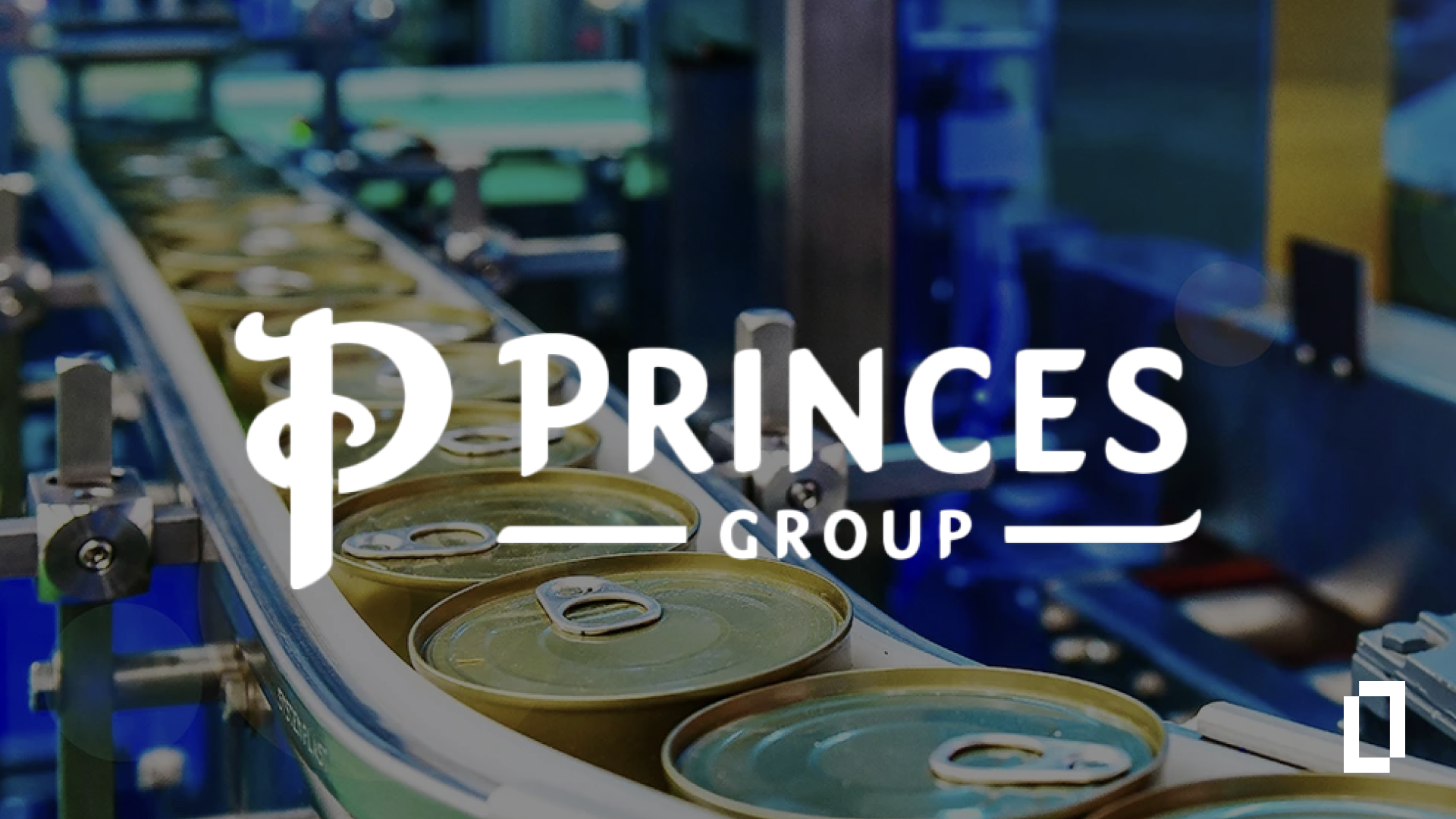PRODUCT IMPLEMENTED
Corporate Carbon Footprinting (CCF)
Product Carbon Footprinting (PCF)
INDUSTRY
Food Manufacturing
HQ
Liverpool, United Kingdom
COMPANY SIZE
15 sites in UK, Europe, & Mauritius
Over 7000 employees
- Comprehensive Scope 1, 2, and 3 emissions measurement
- Identified that 5 business activities contributed to over to 60% of all emissions, which helped focus decarbonisation planning
- Insights from product level emission data now informing product R&D and ingredient sourcing strategies
About Princes Group
The Princes Group is a leading food and beverage company that offers an extensive range of canned and packaged goods, including fish, meat, sauces, pastes, ready meals, fruit and fruit juices.
As a company with a global footprint and a complex supply chain, Princes have strived to minimise their environmental impact by adopting sustainable sourcing, participation in global consortiums for sustainable fishing practices, promoting responsible packaging, and supporting ethical and transparent supply chains.
In line with these commitments, Princes partnered with Terrascope, an end-to-end decarbonisation platform, to further advance their sustainability initiatives and build a more sustainable value chain.
The Challenge
Princes was looking to take big steps forward in their sustainability journey. They wanted to set emissions targets in accordance with the Science Based Targets Initiative (SBTi) and get ahead of upcoming regulations in the UK, such as the Corporate Sustainability Reporting Directive (CSRD) and Carbon Border Adjustment Mechanism (CBAM). Moreover, Princes was committed to sharing product level emissions of their products in line with the increasing expectations of UK supermarkets, and to developing future products with emission labels.

The Terrascope Solution
Princes turned to the Terrascope platform to effectively measure and manage their corporate and product level emissions, while meeting the transparency requirements of their sustainability conscious UK supermarkets.
01.
Corporate Carbon Footprinting (CCF)
Terrascope's enabled Princes to put in place a robust and scalable data management process for gathering, ingesting, integrating and transforming dispersed business data into reliable emissions data. This was critical to help Princes to complete a comprehensive Scope 1, 2 and 3 emissions measurement and an initial decarbonisation plan in less than eight weeks.

02.
Product Carbon Footprinting (PCF)
In order to be able to share product level emissions data with their key customers, Princes leveraged the data models and machine learning capabilities of the Terrascope platform to create emission estimates for their entire products portfolio. To enable the appropriate balance of speed and accuracy, Terrascope automates the breaking down of each product SKU into its recipe, raw ingredients and manufacturing processes, and then estimates the emissions for each component. To improve the accuracy of the initial estimates, Princes could then make requests for actual recipe and ingredient data from suppliers.

03.
Building an impactful decarbonisation program
Emissions analytics revealed that Princes' top five business activities accounted for over 60% of their overall emissions, with the top 30 activities accounting for 99% of the reported emissions.
These insights allowed Princes to focus their emission reduction efforts on a few, highly material activities and related ingredient supply chains. Two meat ingredients contributed cumulatively to 23% of the total emissions, with one having an emission intensity over 17 times higher than the average intensity of all other ingredients.

Princes is exploring sourcing strategies for key ingredients from geographies that enable lower emission intensity (such as from Canada), and collaborating with suppliers to implement changes to on-ground practices. With a more comprehensive and granular understanding of product and ingredient level emissions sources, Princes can now focus on targeted procurement activities to help achieve their sustainability targets.
The Value for Princes Group

Operational Efficiency
Moving to a end-to-end decarbonisation platform enabled Princes to move from kick off to acting on decarbonisation initiatives in eight weeks.
A Comprehensive Solution for Managing Climate Performance
Terrascope helped Princes establish a repeatable emissions measurement & reporting process, with a robust data management foundation to meet increasing granular disclosure requirements such as SBTi FLAG. Moreover, creating visibility into Scope 3, supply chain emissions allowed Princes to pinpoint the specific activities and ingredient hotspots that if addressed, would make the biggest impact.
Competitive Advantage
By getting to detailed product level emission data early and using those insights to inform product R&D and procurement decisions, Princes is not only preparing for future data requests from supermarkets and regulators, but also building for future business opportunities.



![[Video] Tetra Pak: Building Sustainability with Speed](https://www.terrascope.com/hubfs/Tetra%20Pak%20%283%29.png)
